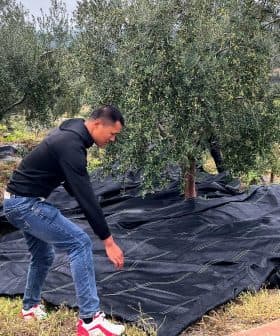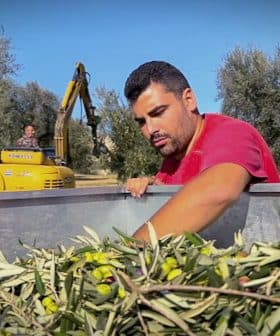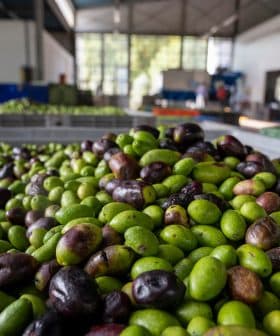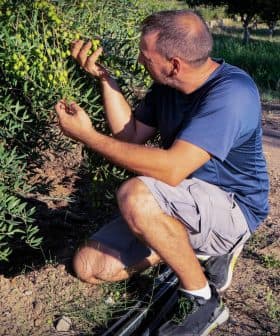Wealthy Nations’ Absence at COP16 Hampers Biodiversity Funding

The United Nations Biodiversity Conference of the Parties (COP16) in Rome finalized a strategy for global funds to combat biodiversity loss, endorsing mechanisms to implement the Kunming-Montreal Global Biodiversity Framework (GBF) and creating the Cali Fund for fair distribution of benefits from genetic resources. The agreement, hailed as historic by COP16 president Susana Muhammad and EU commissioner Jessika Roswall, aims to close the biodiversity finance gap, but challenges remain in securing funding from major economies and ensuring financial commitments are met for the GBF implementation.
A significant number of international delegates convened in Rome, pledging to intensify their commitment to biodiversity conservation worldwide.
In a last-minute decision, the United Nations Biodiversity Conference of the Parties (COP16) finalized a long-anticipated strategy for mobilizing and allocating global funds to combat biodiversity loss.
Biodiversity cannot wait for a bureaucratic process that lasts for ever, while the environmental crisis continues to get worse. Forests are burning, rivers are in agony and animals are disappearing.
Additionally, COP16 endorsed strengthened mechanisms for planning, monitoring, reporting and reviewing the implementation of the Kunming-Montreal Global Biodiversity Framework (GBF), established during COP15.
The GBF is seen as a pivotal framework that lends structure and impact to global biodiversity conservation efforts.
See Also:New Law in Italy Establishes Role of Farmers in Protecting EnvironmentIts primary goal is to curb biodiversity loss by safeguarding at least 30 percent of the world’s land and marine areas by 2030.
The GBF aims to expand natural ecosystems by 2050, properly acknowledge biodiversity’s critical role in sustainable development, facilitate genetic resource sharing and knowledge to enhance biodiversity and increase funding for the least developed countries, transforming biodiversity conservation into a key development opportunity.
Simultaneously, COP16 sanctioned the creation of the Cali Fund, designed to guarantee the fair and equitable distribution of benefits derived from digital sequence information on genetic resources.
The fund is named after Cali, Colombia, where the inaugural COP16 session occurred in November.
The Rome conference also granted indigenous peoples permanent seats, allowing them to voice their perspectives directly at future biodiversity COPs.
Colombian environment minister and COP16 president Susana Muhammad hailed the agreement as “historic,” emphasizing that “we have given legs, arms and muscle to the Kunming-Montreal Biodiversity Framework.”
Jessika Roswall, the European Union’s commissioner for the environment, water resilience and a competitive circular economy, said the agreement “secured a global roadmap to support financing for biodiversity beyond 2030.”
“The results of this meeting demonstrate that multilateralism works and serves as the vehicle to forge the partnerships needed to protect biodiversity and advance peace with nature,” added Astrid Schomaker, executive secretary of COP16.
See Also:Promoting Biodiversity Key to Tackling the Global Water CrisisShe further noted that the world is on the verge of equipping itself with “the means to close the biodiversity finance gap.”
Wealthier nations’ active participation in global biodiversity efforts remains a critical challenge for COP16. The conference’s first session in Cali ended without an agreement.
Although an agreement was reached in Rome, the question of funding remains unresolved. Major economies such as China and the United States did not participate.
Moreover, none of the financial commitments discussed at the conference are legally binding. However, the agreement outlines a $200 (€183) billion fund to support global biodiversity efforts, financed by governments and private entities.
“More than any other issue, the successful implementation of the Global Biodiversity Framework will depend on whether the world meets its financing targets,” said Brian O’Donnell, director of advocacy group Campaign for Nature.
The GBFF, the fund designated to support GBF implementation, currently holds $382 (€350) million, far short of the billions pledged at the Conference.
Only a handful of countries contribute to the GBFF, including the United Kingdom, Germany, Denmark, Spain, Norway, Japan, New Zealand, Canada, France, Austria and Luxembourg.
Bolivian delegate Juan Carlos Alurralde Tejada told The Guardian that uncertainty about who is willing to pay and how the funds will be distributed is draining the global effort.
“Biodiversity cannot wait for a bureaucratic process that lasts for ever, while the environmental crisis continues to get worse,” he said. “Forests are burning, rivers are in agony and animals are disappearing.”









